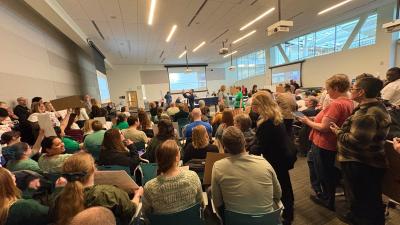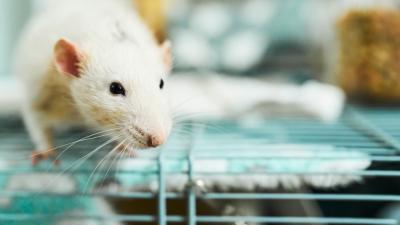Doctors’ Group Files Federal Complaint Against CU Anschutz Over Animal Use
National Nonprofit Reveals Most Surgical Training Programs Use Superior Human-Relevant Methods

AURORA, Colo.–As medical education practices modernize, one group is seeking to accelerate the process. Today, the Physicians Committee for Responsible Medicine—a national nonprofit with more than 12,000 doctors—filed a complaint against the University of Colorado (CU) Anschutz Medical Campus for its use of live animals in the training of surgeons. According to the complaint filed with the U.S. Department of Agriculture (USDA) this use of live animals constitutes a violation of the Animal Welfare Act.
The Physicians Committee‘s nationwide survey of general surgery residency programs has found that 75% (193 out of 258 programs) do not use live animals to train residents. This statistic includes other programs in Colorado: Sky Ridge Medical Center, Swedish Medical Center, and Kansas City University at St. Anthony Hospital use only nonanimal methods to train residents.
The complaint outlines the many methods modeled on human anatomy that can be used to teach surgical skills, including both open and minimally invasive procedures. These include interactive virtual reality platforms, adult-sized human-patient simulators, human cadavers, and partial task training devices designed for the practice of specific procedures. The remarkably lifelike medical simulators can include layers of lifelike skin, fat, and muscle, replicate human anatomy, and simulate bleeding. The Physicians Committee notes that the university already has a state-of-the-art facility—the Center for Surgical Innovation—that could be used to replace this particular use of animals.
The procedures that are taught on pigs must later be relearned on human patients. Compared to humans, pigs have smaller torsos, lighter limbs, and thicker skin. There are also important differences in the anatomy of the head and neck, internal organs, rib cage, blood vessels, and the airway.
“Across the country, hundreds of other surgery programs have replaced animal use or never used animals in the first place,” said Physicians Committee director of academic affairs, John Pippin, MD, FACC. “There is no justification for this practice, and we hope CU Anschutz will see that.”
The Animal Welfare Act requires that a “principal investigator”—including course instructors—consider alternatives to the use of animals for training. The Physicians Committee’s complaint, which was filed with the USDA Animal and Plant Health Inspection Service, cites inadequate oversight of the training protocol by the school’s internal animal care and use committee.
For a copy of the complaint or to speak with Dr. Pippin, please contact Reina Pohl at 202-527-7326 or rpohl [at] pcrm.org (rpohl[at]pcrm[dot]org).
Media Contact
Reina Pohl, MPH
202-527-7326
rpohl[at]pcrm.org
Founded in 1985, the Physicians Committee for Responsible Medicine is a nonprofit organization that promotes preventive medicine, conducts clinical research, and encourages higher standards for ethics and effectiveness in education and research.








